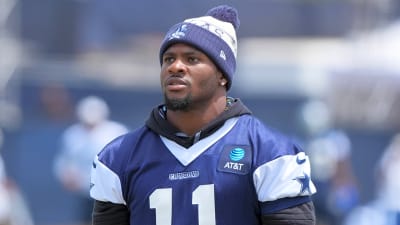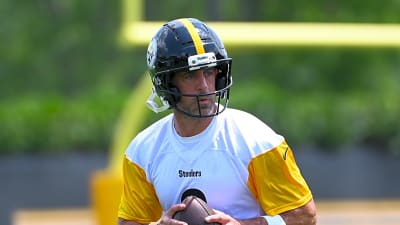
No one should have been voting on the “Tush Push” Wednesday at the Omni Viking Lakes Hotel in Eagan, Minnesota.
Yet, every discussion and every talking point regarding the NFL’s failure to remove offensive pushing from the game was about the Eagles’ signature play.
In hindsight, the league’s branding of its failed proposal may have been the worst in the history of modern sports after Jeffrey Lurie passionately defended his team's push play during Wednesday morning’s Competition and Health & Safety session.
Lurie brought along former All-Pro center Jason Kelce and assistant GM and football operations expert Jon Ferrari to snatch victory from the jaws of defeat by further backing the idea that the supercharged QB sneak should stay in the game.
NFL commissioner Roger Goodell bungled this from square one with news that Green Bay was just the patsy to put forth a proposal that was going to be unpopular in some quarters.
According to multiple sources, the Packers weren’t all that worried about the play but were recruited due to their unique setup with no owner to take the incoming barbs.
The wording of the original proposal foolishly targeted the specific Tush Push play and never really got out of neutral at the annual meeting earlier in the spring, with a straw poll showing a 16-16 vote, far short of the 24 needed to pass.
The issue was tabled until this week in Minnesota with the proposal being reworked into a much broader piece of legislation far beyond the push sneak designed to prohibit “an offensive player from pushing, pulling, lifting, or assisting any runner except by individually blocking opponents for him” anywhere on the field.
The plan was a reversal back to the 2004 rule that was foolishly removed due to perceived difficulties of officiating, but was really an unintended consequence of video replay and the overreactions to it.
Yet, what Lurie and Co. ended up successfully arguing was already spiked in Palm Beach.
Whether by design or not, the Eagles, who a team source said believed the play was going to be banned going into this morning's meeting, duped Goodell and the NFL en route to a 22-10 split, two votes shy of what the NFL wanted.
By making it about themselves, Lurie and Co. were able to keep the the dead issue of banning a single play alive and take eyes away from the far broader tweaked version of the fledgling rule, keeping a firewall intact that likely would have dissipated had that perception morphed into the reality of what was on paper in front of the owners.
More must-reads:
- Broncos work not done after extending standout DE Zach Allen
- Browns held Shedeur Sanders out of team drill due to arm injury
- The 'NFL mascot names' quiz
Breaking News
Trending News
Customize Your Newsletter
 +
+
Get the latest news and rumors, customized to your favorite sports and teams. Emailed daily. Always free!








